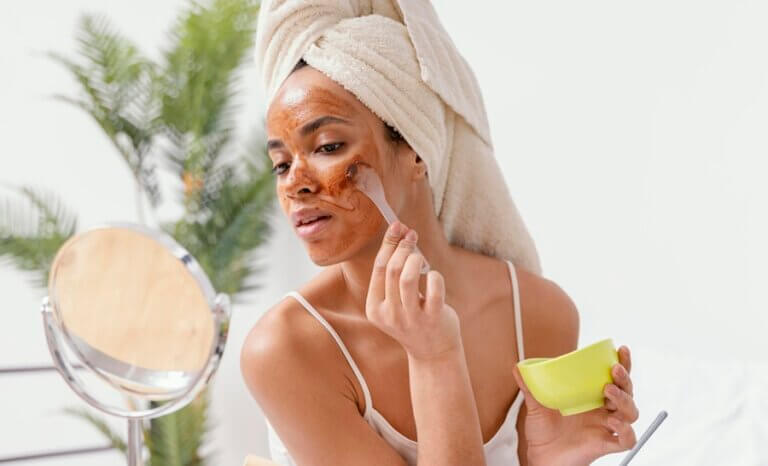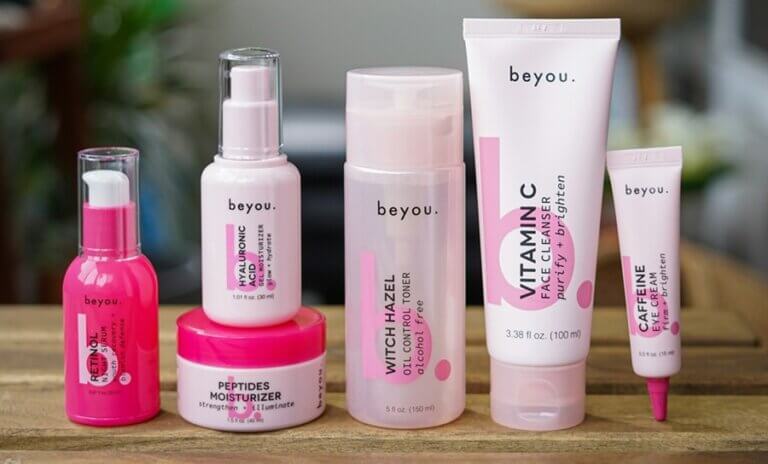This post contains affiliate links. As an Amazon Associate, we earn from qualifying purchases. View our full disclosure here.
Are you tired of dealing with shiny, greasy skin? Do you struggle to find the right products to keep your oily skin under control? If so, you’re not alone. Many people with oily skin face challenges when it comes to finding the best skincare routine. In this article, we will discuss the causes of oily skin and provide some expert tips on how to create a skincare routine that works for you.
What Causes Oily Skin?
Oily skin is often the result of genetics, hormones, or environmental factors. Overactive sebaceous glands can produce excess oil, leading to shiny skin and clogged pores. Hormonal changes, such as puberty or menopause, can also contribute to oily skin. Additionally, hot and humid weather can exacerbate oil production, making it even more challenging to manage.
What are common signs of oily skin?
Oily skin is a common skin type characterized by excess sebum production. Sebum is an oily substance produced by the sebaceous glands in the skin. Individuals with oily skin often experience a shiny appearance on their face, enlarged pores, and are prone to acne breakouts.
- Shiny Appearance: One of the telltale signs of oily skin is a shiny or greasy look on the face, especially in the T-zone (forehead, nose, and chin). If your skin appears shiny throughout the day, you likely have oily skin.
- Enlarged Pores: Oily skin is often associated with enlarged pores. If you notice visible pores on your face, particularly in the nose and cheek area, it could be a sign of excess oil production.
- Frequent Breakouts: Individuals with oily skin are more prone to acne breakouts due to the excess oil clogging the pores. If you frequently experience pimples, blackheads, or whiteheads, you may have oily skin.
- Oiliness Throughout the Day: Oily skin tends to become greasy and oily shortly after cleansing. If you find that your skin gets oily a few hours after washing your face, it’s a clear indication of oily skin.
- Makeup Doesn’t Last: If your makeup tends to slide off or fade quickly, it could be due to the excess oil on your skin. Oily skin often causes makeup to break down faster and not adhere properly to the skin.
- Skin Texture: Oily skin can feel greasy to the touch and may have a thicker, more coarse texture compared to other skin types.
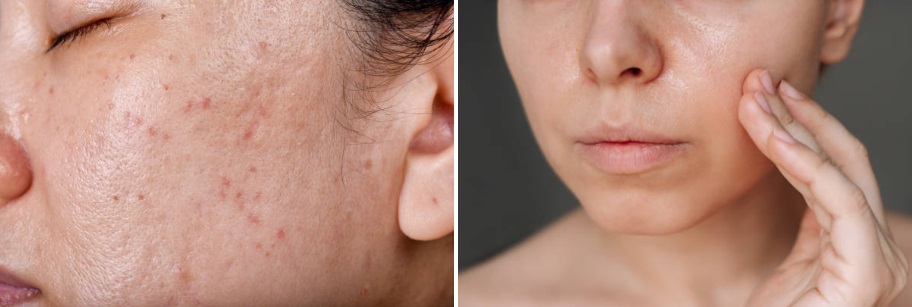
Skincare Routine for Oily Skin
Creating a skincare routine for oily skin involves finding the right balance of products that can help control oil production without stripping the skin of its natural moisture. Here are some expert tips to help you create the best skincare routine for your oily skin:
01. Cleanse Twice Daily
Cleansing your skin is essential for removing excess oil, dirt, and impurities. Use a gentle foaming cleanser formulated for oily skin to remove excess oil without over-drying. Washing your face twice a day, in the morning and evening, can help keep oiliness at bay.
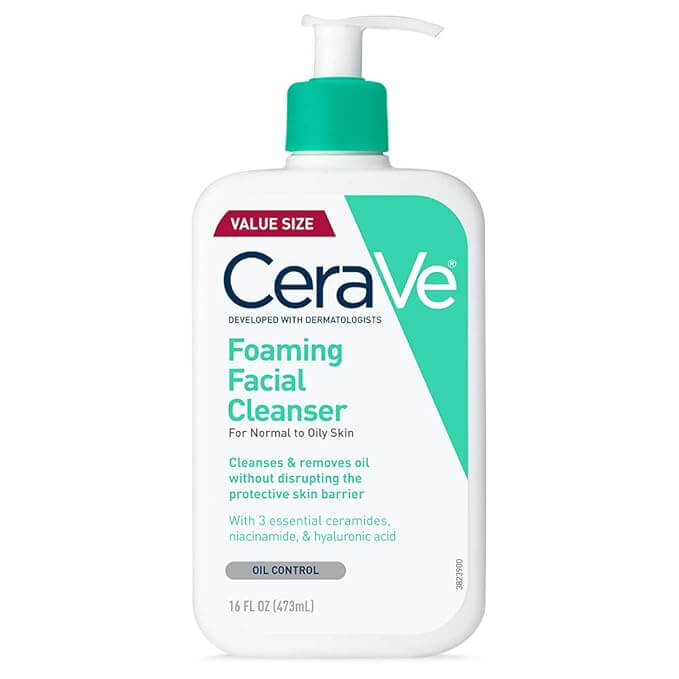
CeraVe Foaming Facial Cleanser
⭐⭐⭐⭐⭐
Skin Type: Normal to Oily
Size: 16.0 Fl Oz
Fragrance-free, paraben free, non-comedogenic, non-drying, and non-irritating. Gently refreshes and effectively removes excess oil, dirt, and makeup
02. Use a Toner
Toners are a great addition to your skincare routine for oily skin. They can help remove any leftover impurities after cleansing and tighten the pores. Look for a toner that contains ingredients like witch hazel or salicylic acid to help control oil production.
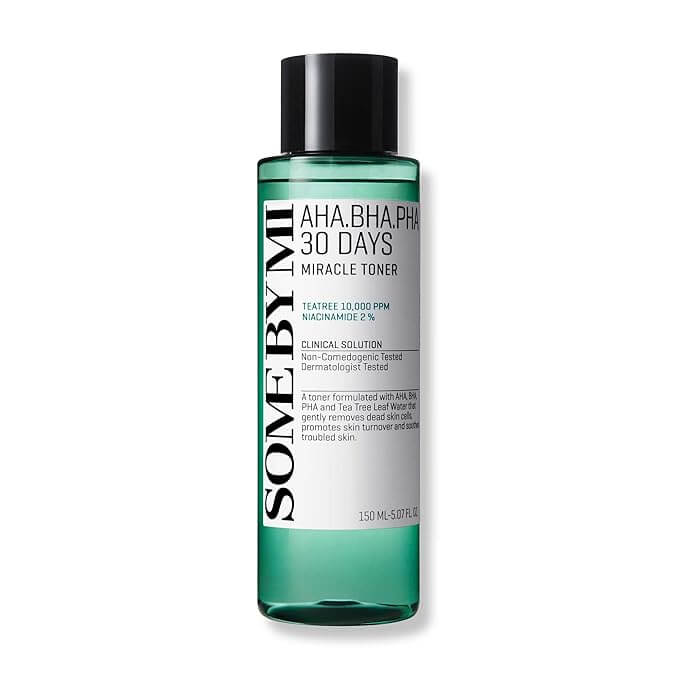
SOME BY MI AHA BHA PHA 30 Days Miracle Toner
⭐⭐⭐⭐⭐
Skin Type: Oily, Acne Prone Skin, Combination, Sensitive, Dry
Size: 5.07 Fl Oz
This exfoliating toner includes AHA/BHA/PHA & Papaya extract & Witch Hazel extract to remove dead skin and body wastes.
Also read: How to Remove Acne Scars and Dark Spots Caused by Pimples
03. Moisturize Daily
Contrary to popular belief, oily skin still needs moisture. Use a lightweight, oil-free moisturizer to hydrate your skin without adding extra oil. Look for products with hyaluronic acid or glycerin, which can help hydrate the skin without clogging pores.
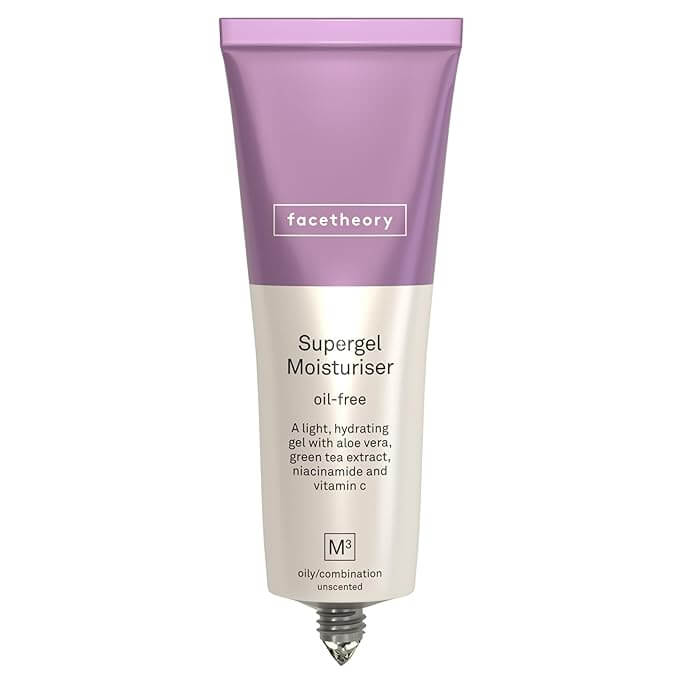
facetheory Supergel Oil- Free Moisturizer
⭐⭐⭐⭐⭐
Skin Type: Combination/Oily
Size: 1.7 Fl Oz
A lightweight gel moisturizer with salicylic acid, protects and relieves congested skin. While niacinamide helps to minimize the appearance of pores.
04. Apply Sunscreen
Sunscreen is crucial for protecting your skin from UV damage, even if you have oily skin. Look for a non-comedogenic sunscreen with at least SPF 30 to protect your skin without causing breakouts. Opt for a lightweight formula that won’t feel heavy or greasy on your skin.
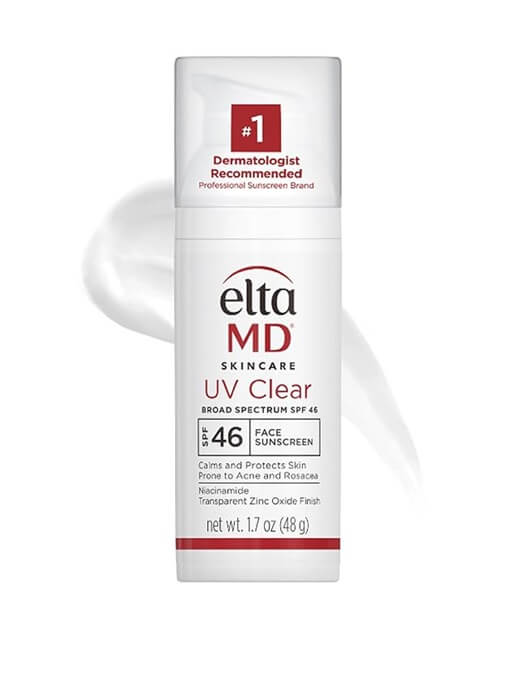
EltaMD UV Clear Face Sunscreen SPF46
⭐⭐⭐⭐⭐
Skin Type: Sensitive, Acne-Prone, Rosacea
Size: 1.7 Fl Oz
EltaMD UV Clear is an oil free sunscreen with Zinc Oxide that blends in effortlessly and leaves no white cast. Helps protect against breakouts and is an essential acne sunscreen for those with acne prone skin care concerns. This travel size sunscreen pump bottle is the perfect companion for bringing on the go as your daily face sunscreen.
05. Use Oil-Absorbing Products
In addition to your regular skincare routine, consider incorporating oil-absorbing products into your regimen. Oil-absorbing sheets or blotting papers can help control shine throughout the day, while mattifying primers can create a smooth base for makeup application.
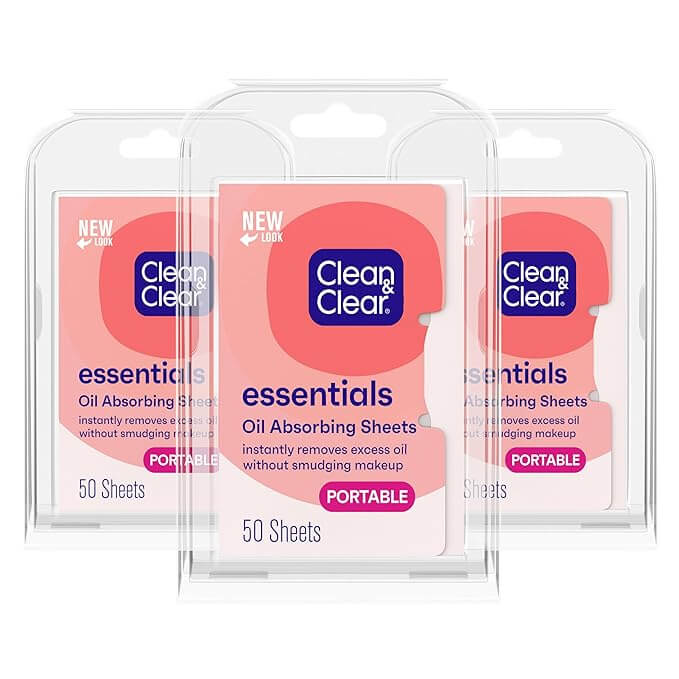
Clean & Clear Essentials Oil Absorbing Facial Sheets
⭐⭐⭐⭐⭐
Skin Type: Normal
Size: 50 Sheets
Oil-absorbing papers are suitable for all skin types, including normal, oily and combination skin types, and designed for daily on-the-go touch ups that will remove shine but won’t smudge or ruin makeup.
Also read: The Best Skincare Routine For Your Dry Skin
Additional Tips for Maintaining Oily Skin
- Mask it up: Use a clay mask once or twice a week to help absorb excess oil and mattify your skin. Look for a clay mask formulated specifically for oily skin.
- Diet: What you eat can affect your skin. Avoid greasy, sugary, and processed foods, as they can increase oil production. Instead, focus on eating a healthy diet rich in fruits, vegetables, and whole grains.
- Lifestyle: Stress can also contribute to oily skin. Find healthy ways to manage stress, such as through exercise, yoga, or meditation. Additionally, ensure you get enough sleep each night; aim for seven to eight hours.
Conclusion
Creating a skincare routine for oily skin can be challenging, but with the right products and techniques, you can achieve balanced, healthy-looking skin. By cleansing, toning, moisturizing, and protecting your skin, you can effectively manage oily skin and enjoy a clearer complexion. Remember to consult with a dermatologist if you have persistent skin concerns or if you need personalized skincare recommendations.


